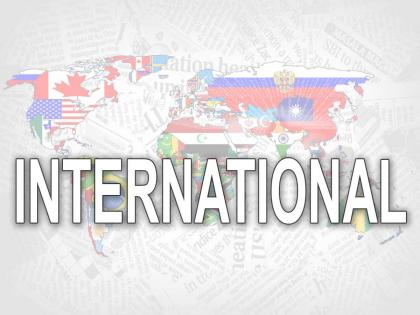Death toll in Chile protests rises to 19
By IANS | Published: October 26, 2019 02:22 AM2019-10-26T02:22:04+5:302019-10-26T02:30:05+5:30
The number of people killed in Chile rose to 19 on Friday, five of them foreigners, in a week of protests around the country against the government of Chile's President Sebastian Piñera, during which the military took charge of maintaining order and curfews have been in force.

Death toll in Chile protests rises to 19
The latest victim was a Peruvian woman who died in hospital after being shot three days ago when a gang was looting of a store in the Puente Alto municipality on the capital's south side, the Efe news reported.
This Peruvian citizen was the fifth foreigner killed during the week of protests, along with two Colomb, another Peruvian and an Ecuadorian, according to official government figures.
The Chilean undersecretary of the interior said the last to die was shot by the store owner who was trying to defend himself against the looters with a gun that authorities confirmed was legally registered.
In that sense, the Southern Metropolitan District Attorney's Office, in charge of the investigation, ruled that the shot was fired in legitimate self-defence by the storekeeper.
From Peru, the Foreign Ministry of the Andean nation confirmed that three Peruv have died, while Chile said only two have been counted. However, seven other bodies as yet unidentified were found inside supermarkets that were sacked and burned down.
Besides the number of dead, the Chilean government reported that 31 different protests occurred around the country this Thursday, chiefly in the port city of Valparaiso and in the capital's western municipality of Maipu.
For example, this Friday hundreds of trucks, taxis and private vehicles stormed onto the expressways, which circle and cross Santiago, to form a slow caravan that created chaotic traffic jams in the Chilean capital after the week of protests.
If getting around the city had been complicated over the past seven days due to subway lines being at a standstill and urban transport reduced, the mobilization of vehicles on the expressways made it almost impossible for motorists to drive into downtown Santiago.
In this case the protest was against the high cost of driving on the expressways, since everyone has to pay a toll to use them.
During the day of protests this Thursday, authorities counted 1,02,680 people protesting in the streets, significantly less than the day before, when almost 500,000 citizens went into the streets around the country to express their disillusion with the social inequality that exists in Chile.
The latest update of figures by the National Human Rights Institute (INDH), a public though autonomous agency that keeps track of the actions taken by the forces of order, the number of arrests has risen to 2,840 (1,084 in Santiago and 1,756 in the rest of the country).
As for the injured, there have been 582 in a week of protests, of whom 295 were wounded by weapons, either hit by tear gas bombs, rubber pellets or bullets.
The institute also confirmed reports of torture and abuse by state forces during the protests of the last few days.
The increase in the price of subway tickets set off a wave of protests, which, as the days went by, left citizens feeling that enough was enough. The meager pensions and wages and the high prices of electricity, gas, university education and healthcare sparked a social explosion of a kind not seen since the end of the dictatorship in 1990.
In response, the Chilean president decided to do something about certain elements of the political, economic and social model that are most rejected by the population, such as low pensions, the high cost of medicines and the paltry public healthcare system.
( With inputs from IANS )
Open in app